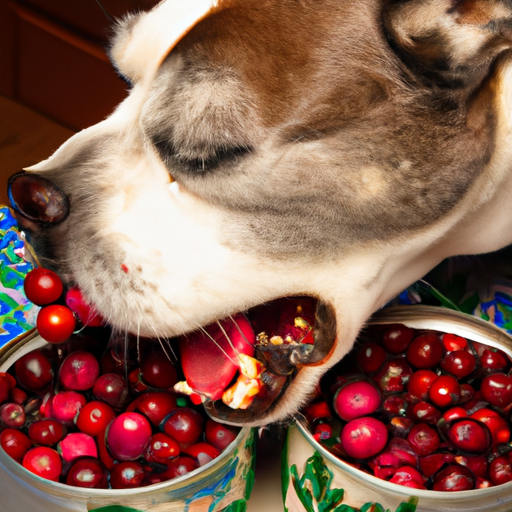Welcome to my blog! Here you’ll find everything you need to know about acorns and other tree nuts for bulldogs. From the best ways to prepare them to the health benefits they offer, I’ll cover it all! So sit back, relax, and enjoy learning everything there is to know about these delicious nuts!
What are acorns and other tree nuts?
Acorns are the fruits of oak trees, and other tree nuts are the fruits of different species of trees in the genera Corylus (hazelnuts), Alnus (almonds), and Betulaceae (birches). While acorns and other tree nuts are not true nuts in the botanical sense, they are generally treated as such for culinary purposes. Acorns and other tree nuts are a good source of dietary fat, protein, minerals, and vitamins A, E, and B2. They can be eaten raw, roasted, or ground into a meal.
Bulldogs are susceptible to developing allergies to acorns and other tree nuts. If your Bulldog has never had a reaction to eating tree nuts before, it is best to introduce them into his diet slowly to watch for any potential adverse reactions. Symptoms of an allergy include vomiting, diarrhea, hives, difficulty breathing, and swelling of the face or extremities. If your Bulldog experiences any of these symptoms after eating acorns or other tree nuts, contact your veterinarian immediately.
Are acorns and other tree nuts safe for dogs?
Most acorns and other tree nuts are safe for dogs to eat, but some can be poisonous. The most common type of tree nut that is poisonous to dogs is the black Walnut. Other trees that produce nuts that can be poisonous to dogs include the English yew, the Japanese yew, the Taxus baccata, and the redcedar. Some of the symptoms of tree nut poisoning in dogs include vomiting, diarrhea, abdominal pain, drooling, tremors, seizures, and weakness. If you think your dog has eaten a poisonous tree nut, contact your veterinarian or local animal hospital immediately.
How can I tell if my dog has eaten acorns or other tree nuts?
The first sign that your dog has eaten acorns or other tree nuts may be vomiting and/or diarrhea. If your dog has eaten a large amount, you may also see blood in his vomit or stool. A blood test may reveal anemia, and X-rays may show blockages in the intestines. If your dog has eaten a large amount of acorns or other tree nuts, he may also suffer from liver damage.
What should I do if my dog has eaten acorns or other tree nuts?
If your dog has only eaten a few acorns, there is likely no cause for concern. However, if your dog has eaten a large quantity of acorns or other tree nuts, it is important to seek veterinary care immediately. Dogs who have eaten large quantities of tree nuts may experience vomiting, diarrhea, and abdominal pain. In severe cases, dogs may also experience pancreatitis or liver damage.
How can I prevent my dog from eating acorns or other tree nuts?
Although tree nuts are not toxic to dogs, they can cause digestive upset if consumed in large quantities. If you are concerned that your dog may be attracted to acorns or other tree nuts, there are a few things you can do to deter them:
-Keep your dog on a leash while walking in areas where acorns or other tree nuts may fall from trees.
-Pick up any fallen acorns or tree nuts before your dog has a chance to eat them.
-Avoid feeding your dog table scraps that include acorns or other tree nuts.
-Consider using a pet-proof garbage can liner to prevent your dog from getting into the trash if it contains acorns or other tree nuts.
If you think your dog has eaten any acorns or other tree nuts, contact your veterinarian for advice.
What are the benefits of feeding acorns and other tree nuts to dogs?
There are many benefits to feeding acorns and other tree nuts to dogs. They are a good source of protein, healthy fats, vitamins, and minerals. They can help to keep your dog’s coat healthy and shiny, and can also help to reduce shedding. Acorns and other tree nuts can also help to improve your dog’s digestive health, and can even help to protect against some types of cancer.
Are there any risks associated with feeding acorns and other tree nuts to dogs?
While most dogs will not be adversely affected by eating small quantities of acorns or other tree nuts, there is a potential for gastrointestinal upset and blockage if your dog ingests large pieces or swallows them whole.
The tannic acid in acorns can also cause constipation, so it’s important to monitor your dog’s stools if they are eating significant quantities of these nuts. If you are concerned about your dog’s health, please consult with a veterinarian before feeding them any new foods, including acorns or other tree nuts.
How can I incorporate acorns and other tree nuts into my dog’s diet?
You can safely feed your dog a small handful of acorns and other nuts as a treat. Just be sure to remove the shells first. You can also add chopped nuts to your dog’s food bowl, or use them as training treats. If you’re not sure how your dog will react to nuts, start with a small amount and see how he does.



